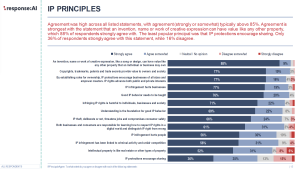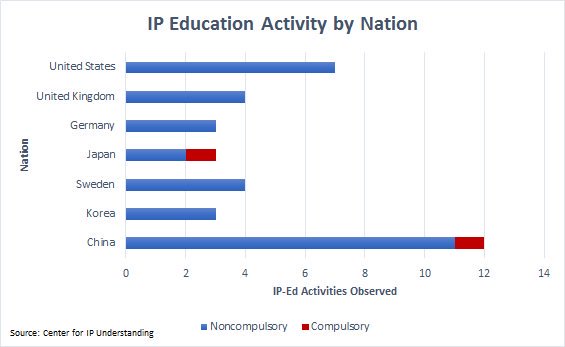Reports
The following represent original CIPU research and summary reports.
__________
Manager and Entrepreneur IP Experience:
The Limitations of On-the-Job Learning
A research report based on extensive interviews with 15 primarily U.S. managers and entrepreneurs who either use, manage or work with patents, copyrights or trademarks as central to their job concludes they were ill-prepared to deal with IP rights in a business setting.
Most interviewed say their IP education took place on the job, often though trial and error.
The 28-page report, ‘Manager and Entrepreneur IP Experience: The Limitations of On-the-Job Learning,’ should encourage further research about how IP value can be best managed. The interviews were conducted for the CIPU to better identify when and how various professionals learn about IP rights and the IP system.
The key trends derived from the interviews:
- Most professionals first encounter IP concepts on the job, highlighting a need for formal academic exposure.
- STEAM graduates face a steep learning curve in navigating patents, copyrights, trademarks and trade secrets.
- Current IP resources are often written “by lawyers, for lawyers,” leaving non-legal professionals without practical tools.
- Professionals must adapt to differing IP laws and platforms in an increasingly globalized market.
- Professionals working with IP rights who sought IP knowledge during their studies said they were better equipped for career success.
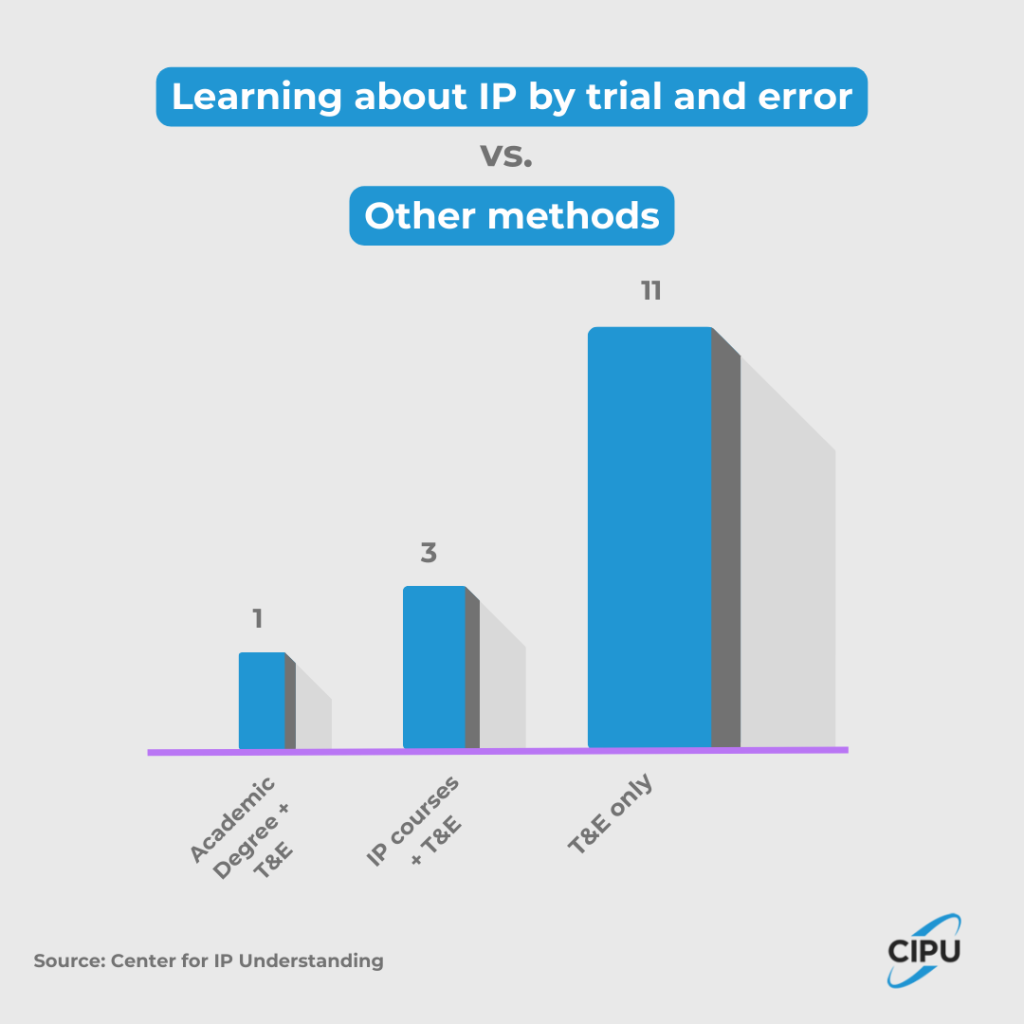
__________
Intellectual Property Principles:
What the IP Community Regards as Important
Most people in the IP community believe IP rights like patents, copyrights and trademarks can have significant value. Members are more divided when it comes to comparing IP rights to other types of property, like real estate, and whether or not IP rights encourage sharing.
Intellectual Property Principles was commissioned by CIPU and conducted by Response: AI, a leading independent market research firm. Respondents include IP owners, inventors and other creators, as well as lawyers, corporate managers, lawmakers and educators.
Key findings include:
- Creators and IP professionals agree that an invention, name or work of creative expression can have value like any other property. 88% strongly agree, while another 9% agree “somewhat.”
- 96% of those surveyed agree that copyrights, trademarks, patents and trade secrets provide value to both owners and society at large. However, only 77% strongly agree with this statement.
- Only 71% of respondents believe strongly that patents have a positive impact on innovation and even fewer, 68% believe it has a beneficial impact on the economy as a whole (slide 13).
| - Only 73% believe strongly in copyrights’ positive impact on creative expression and 66% on society as a whole (slide 14).
__________
Assessing Intellectual Property Engagement at the Largest U.S. University Entrepreneurship and Innovation Programs
Programs at the top ten U.S. schools with the largest enrollment, a total of more than 489,000 students, are beginning to recognize the importance of basic IP knowledge for future business leaders, but more still needs to be done.
Findings include:
- A university’s high innovation ranking does not always equate with a strong entrepreneurial culture that encourages students to protect their creative labors.
- Strong undergraduate entrepreneurship programs have a few defining characteristics.
- They typically feature a central hub facility connecting students to business resources and mentorship.
- Although cash prizes help to reinforce the competitive nature of these activities, a better approach could incorporate some form of resources for patent, trademark or copyright filings that could be accessed by all contestants
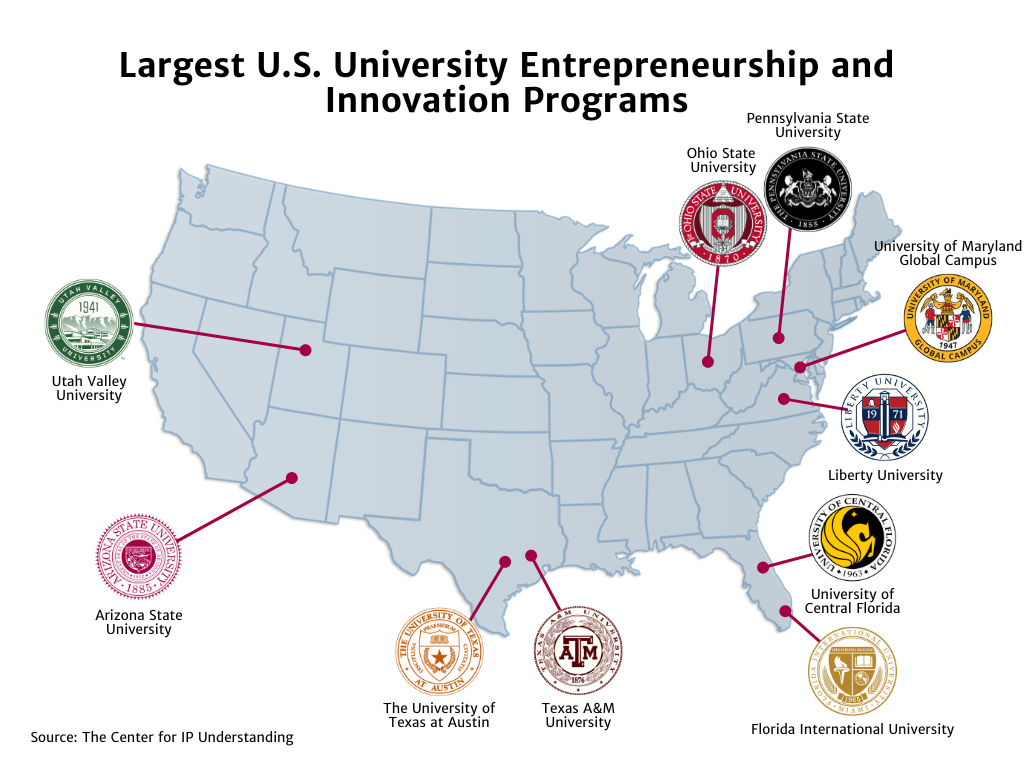
______________
To Patent or Not to Patent? Understanding the Open-Source Option for Businesses
Whether or not a company considers itself to be a software business, the Fourth Industrial Revolution will turn businesses that conduct R&D into software developers.
Among key findings of this CIPU report:
- Businesses must decide early whether or not they want to use IP rights for their software developments.
- The choice whether to pursue patents or open source should be based upon a company’s products and business model.
- Software patenting and open source business models can co-exist successfully.
- Software patent policy is informed by misguided scholarly research on “software patents,” a term that has no clear definition, legal or otherwise.
- Firms conducting R&D that choose to patent software need to advocate for better eligibility in order to protect their interests.
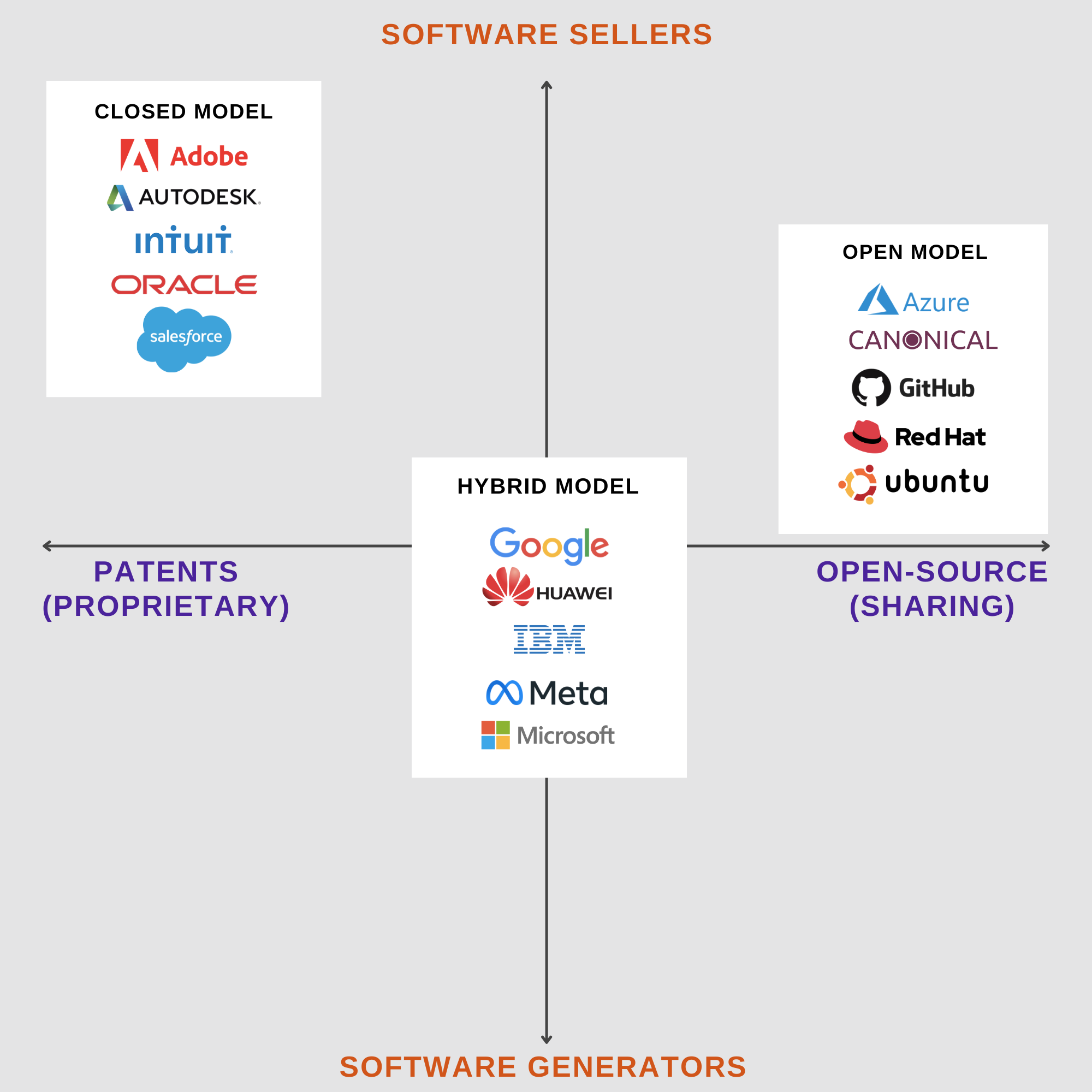
_____________
IP Education at Business Schools: An Evolving Landscape
Courses, Content and Instructors at Leading Management Programs
Over the past 20 years many of the elite MBA programs have expanded their intellectual property course offerings, but has made basic IP knowledge a requirement to graduate. IP course offerings remain elective at all of the top-20 U.S. business programs.
Among key findings of this CIPU business school report:
- The top 20 business schools offer a total of at least 44 IP courses
- Almost one-third of business schools offer only one course
- None have a required or core IP course
- Leader Harvard Business School offers six courses; Wharton offers five
- Lack of data make it difficult for many to support the IP education argument
- Some B-school educators do not believe that IP is best taught by lawyers
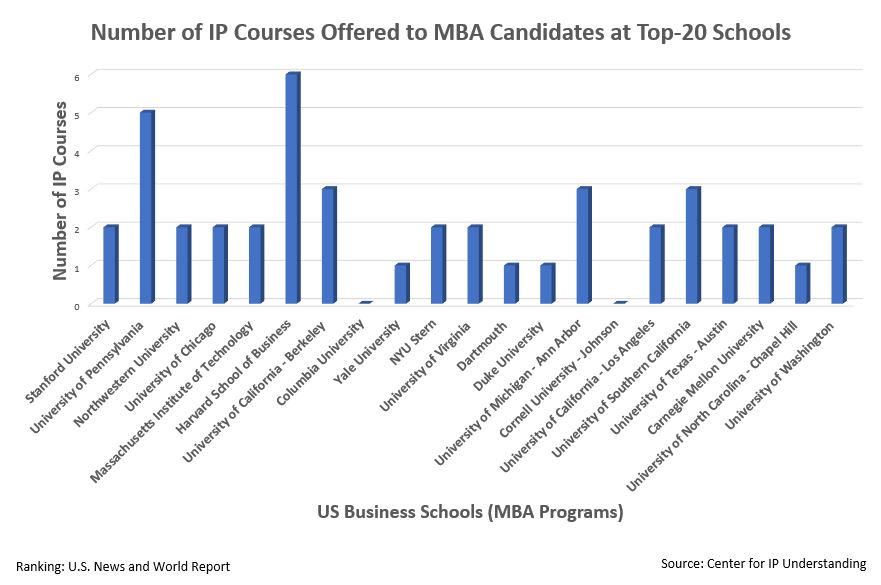
________________
IP Literacy in Asia: From Mobile Games to Creator Education
Emerging Trends in China, South Korea, Singapore and Japan
China, South Korea are Singapore have relatively new the intellectual property systems. Yet all three place a high priority on conveying IP basics to creators, entrepreneurs and consumers. This report summarizes some of their key initiatives.
Key findings include:
• National IP office and education institutions have made sizable investments
• There is an effort in their national education curricula to reach students early
• South Korea, Singapore and China IP systems are relatively new
• SK and Singapore have changed global perceptions in a few decades by increasing IP awareness
• Despite IP theft and questionable quality, China is strongly pro-IP in education, stressing national benefits
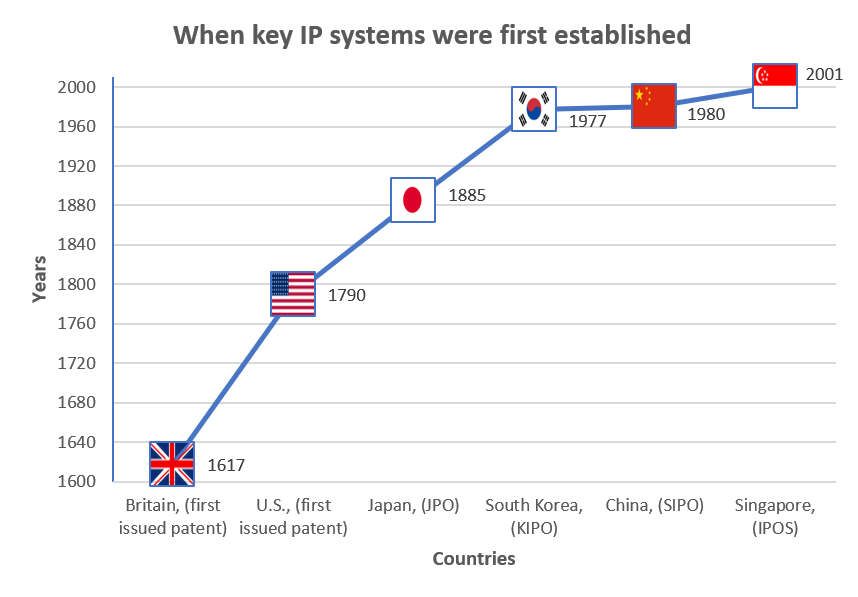
________________
The State of IP Education Worldwide: Seven Leading Nations
CIPU examines the types of IP awareness programs available in the U.S., UK, Japan, Korea, China, Germany and Sweden, and their impact.
Key findings of the report include:
- Fewer than half of the countries examined have IP-related curricula for K-12 students
- Japan and China are the only nations where IP education is occasionally required
- China, the last to develop IP-Ed activities, has been adopting them fastest
- Top IP Index performers, US and UK, are also leading IP-Ed providers
__________
Awareness and Attitudes: A summary of Research and Data
There is a growing “disconnect” between consumers, intellectual property awareness and behavior. These findings were published in a CIPU summary of research and surveys focusing on a decade of IP awareness and attitudes in the U.S., Europe and Asia reveals
Key findings include:
- 31% of those who purchased counterfeits said that it was acceptable if no legal alternative was available
- Most people cannot accurately describe IP or IP crimes; they believed that if IP theft was a serious problem “they would see more news stories on the subject”
- There is a common perception that IP rights only benefit large corporations.
- 76% of the teaching staff surveyed in a UK study believe that IP should be taught, 69% of the students said they had received no IP education or did not know if they had
__________
Report: Patterns in Media Coverage of Patent Disputes
CIPU’s analysis of 127 articles published in 2016 covering patent disputes for patterns in subjectivity. Media includes leading business, technology and general publications.
Key findings of the report include:
- 42% of media coverage are advocacy pieces written by authors promoting a political or business agenda
- 57% of case coverage of patent infringement in technology publications provide a single POV, plaintiff or defendant
- 42.5% of patent infringement coverage in the sample features either Apple or Samsung.
An infographic of more key findings.

